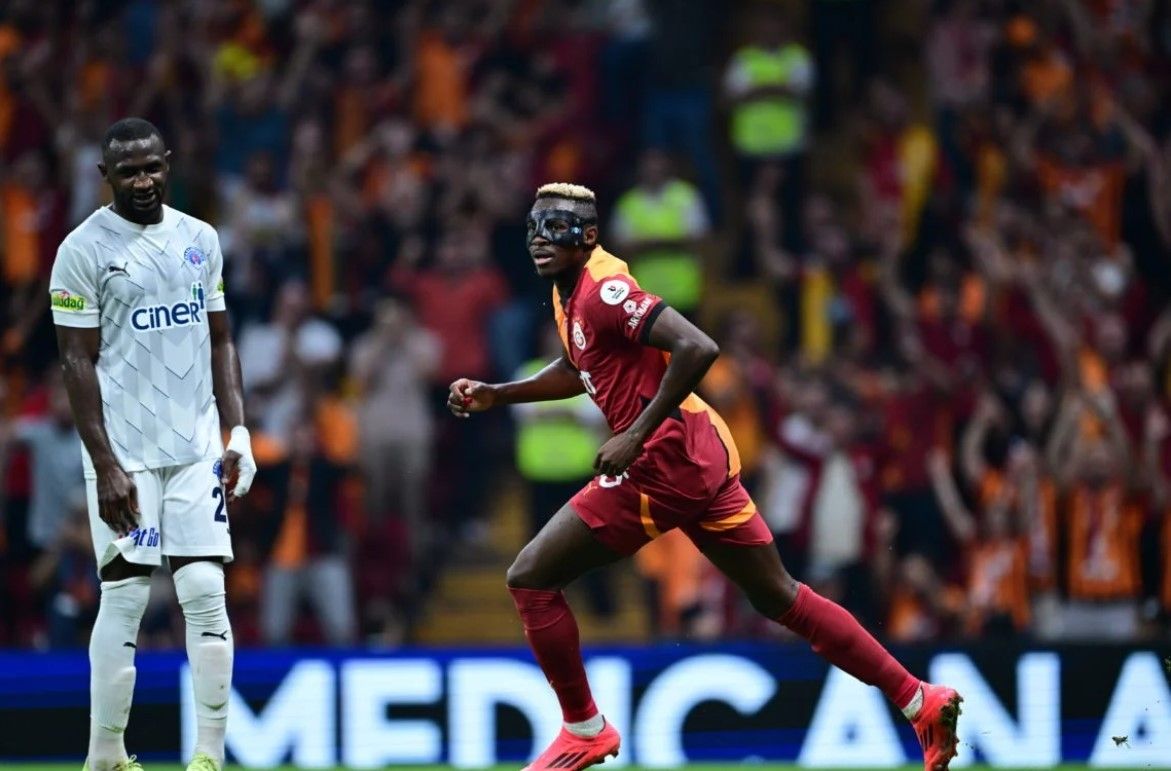Former Galatasaray manager Hamza Hamzaoğlu has poured cold water on speculation linking the Turkish champions with a permanent move for Nigerian striker Victor Osimhen, citing the club’s financial limitations as a major obstacle. Speaking to Habersarikirmizi, Hamzaoğlu delivered a stark assessment of his former club’s chances of securing the Napoli forward beyond his current loan spell.
The experienced coach’s comments come amid growing anticipation surrounding Osimhen’s future, with Galatasaray reportedly keen to convert the Nigerian international’s temporary stay into a permanent arrangement. However, Hamzaoğlu’s forthright analysis suggests such ambitions may prove unrealistic given the financial dynamics at play.
It is difficult for Galatasaray to buy Victor Osimhen. In fact, I can say that they cannot,” Hamzaoğlu stated emphatically, addressing the mounting speculation about the striker’s future. His assessment stems from a deep understanding of Galatasaray’s financial structure and the realities of modern football economics.
The situation is further complicated by widespread interest in Osimhen from other clubs, a factor Hamzaoğlu highlighted while discussing the potential transfer. The former manager acknowledged that while Galatasaray might be able to participate in negotiations up to a certain point, pursuing the deal beyond that threshold could create significant problems for the club.
Osimhen joined the Yellow and Reds on loan from Napoli in September, marking a significant coup for the Turkish Super Lig champions. His arrival generated considerable excitement among supporters, who have since harbored hopes of seeing the dynamic striker make Istanbul his permanent home.
Current Galatasaray manager Okan Buruk has made no secret of his desire to retain Osimhen’s services beyond the current campaign. However, Hamzaoğlu’s insights suggest that such aspirations might need to be tempered against the harsh realities of football finance.
The root of the problem lies in the substantial financial outlay that would be required to secure Osimhen’s services permanently. With multiple suitors reportedly interested in the Nigerian international, any potential transfer fee would likely exceed Galatasaray’s realistic spending capabilities.
Hamzaoğlu’s analysis extends beyond mere financial considerations to touch upon the broader implications for club sustainability. Financial situations need to be considered,” he noted, highlighting the importance of responsible fiscal management in modern football. This prudent approach reflects the increasing emphasis on financial fair play regulations and sustainable club operations across European football.
Despite his skepticism about a permanent transfer, Hamzaoğlu acknowledged the positive impact Osimhen has had during his loan spell. If he stays, he will continue to benefit,” the former coach observed, recognizing the striker’s value to the team’s tactical setup and overall performance.
The situation exemplifies the challenges faced by clubs outside Europe’s wealthiest leagues in attempting to compete for high-profile players. While Galatasaray remains one of Turkey’s most prestigious clubs, with a rich history and passionate fanbase, the financial muscle of teams from more affluent leagues often proves decisive in transfer negotiations.
This reality check from Hamzaoğlu comes at a crucial time as Galatasaray’s management plans for the future. The club must now consider alternative strategies, potentially focusing on identifying more financially viable targets or exploring creative solutions to strengthen their squad.
For Osimhen, the situation adds another layer of intrigue to his career trajectory. Having already demonstrated his abilities in Serie A with Napoli, his loan spell at Galatasaray represents an interesting chapter in his development. However, Hamzaoğlu’s comments suggest his long-term future likely lies elsewhere.
The forthcoming transfer windows will ultimately reveal whether Galatasaray can defy these financial predictions or if they must indeed look elsewhere for attacking reinforcements. Whatever the outcome, Hamzaoğlu’s candid assessment provides valuable context for understanding the complex interplay between sporting ambition and financial reality in modern football.



